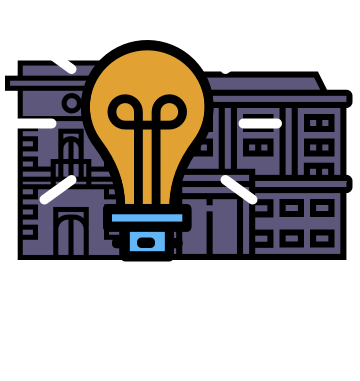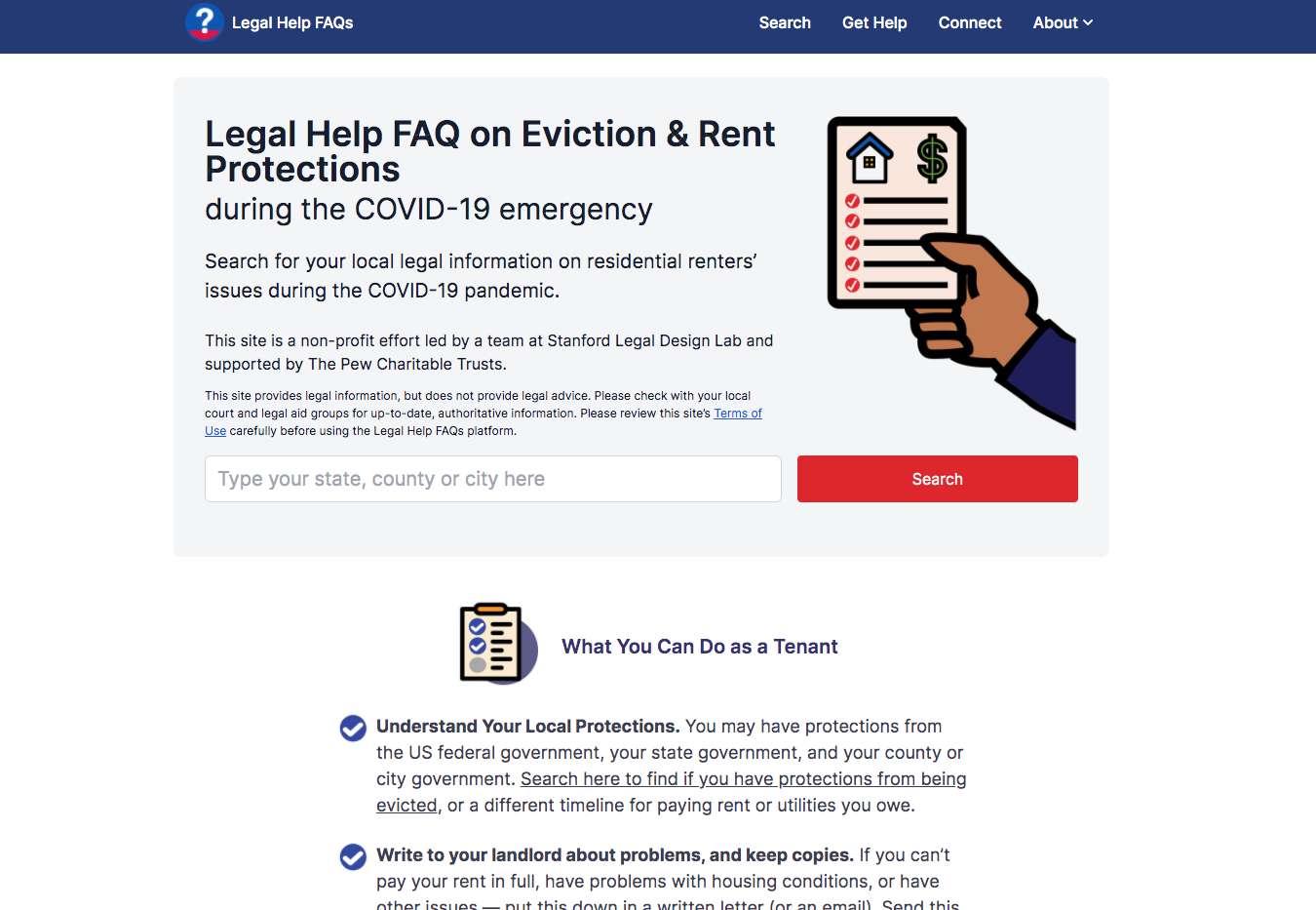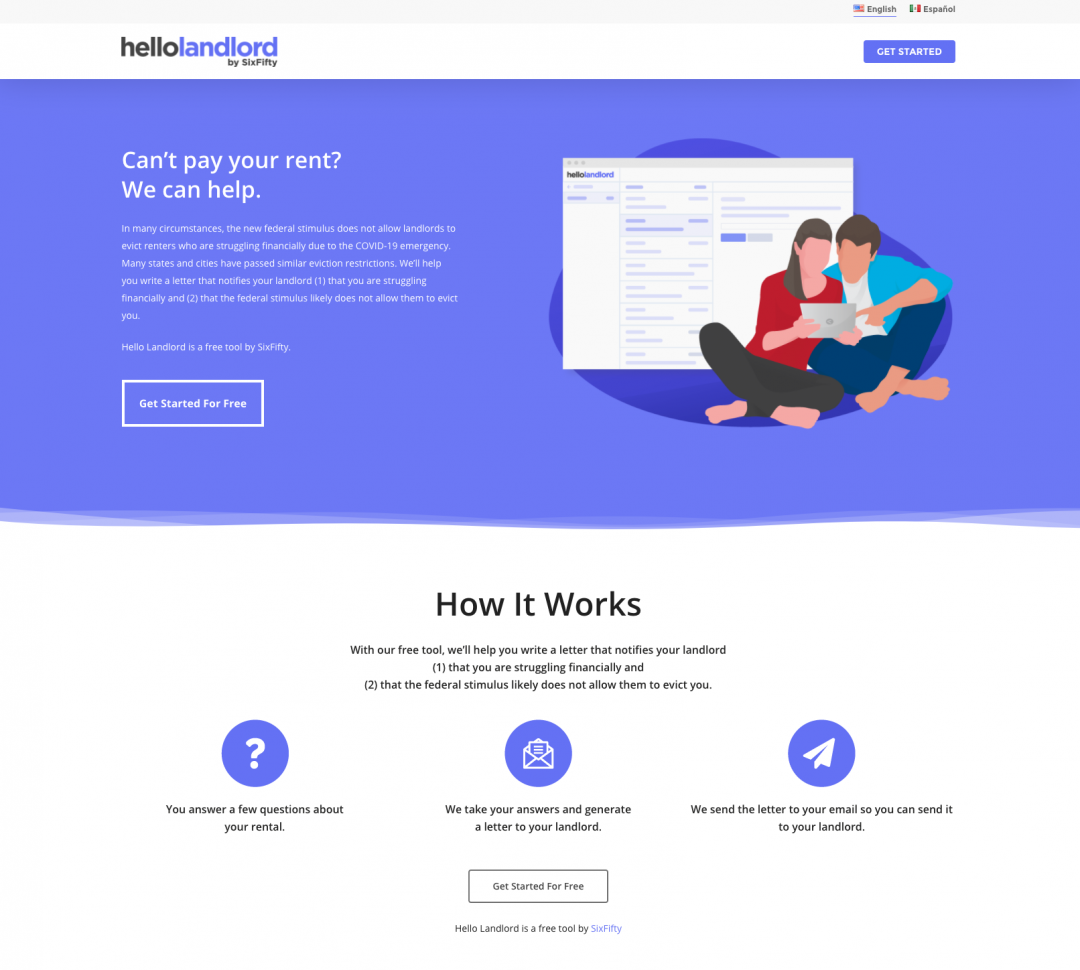The Stanford Legal Design Lab, with support from the Pew Charitable Trusts, coordinated a central national platform, Legal Help FAQs, that could direct people to the key information for renters in their jurisdiction and then hand them off to local public interest groups for fuller services and information.
The key thing is the jurisdiction: to design a site that necessarily channels people to the right jurisdiction, and constantly reinforces that the site’s information is only correct for people in a certain place.
We designed a central national site that would make clear to visitors that their rights and services depended entirely on their location — and to bring them right to their state’s key information (rather than leaving them to search for it on their own).

Our team spent the past three months building out the Legal Help FAQs platform from scratch, with our initial version focused on key questions for renters about eviction, rent, utilities, court hearings, and repairs during the pandemic. We designed the site specifically for search engine optimization — with an FAQ style that has concise, detailed summaries that could be featured on a search results page as a snippet or call-out. We used Schema.org markup to communicate to search engines that we had FAQ answers on housing issues for COVID-19.
And, we invested in relationships with local legal help experts from around the country. We reached out to networks of legal aid lawyers, housing advocates, and technologists to find at least one volunteer who could help us in each state. Our team of law students from Stanford and Yale drafted initial FAQs by using the wonderful policy tracker from Prof. Emily Benfer’s team at Columbia and Penn Law Schools, collecting help FAQs from each state’s law help portal, and diving into governor’s executive orders and court orders. Our tech lead developed templates that let the law students start from a basic format, that they could edit and refine for the local rules. Then we went through extensive content reviews with our local volunteer experts to get all the details interpreted, corrected, and explained in plain language.

Our volunteer network has been invaluable in keeping us informed on local changes, and interpreting the web of governor, judicial, and legislative orders that are being issued, extended, and (in some cases) retracted. We also have the other policy trackers’ teams to support our ongoing updates, as well as Google News alerts, and team members that will be updating the FAQs weekly during the emergency period.
We’ve also invested in building out a database of legal help websites, emergency rental funds, legal aid groups, and other resources by jurisdiction. This lets us connect visitors to their state, local, and nationwide public interest resources to call, text, or visit online. Gathering all of these sites, hotlines, and tools together has been a massive effort — but has gotten easier once we connected with our local volunteers, who have much of this information collected already in their organizations, and now can share it with a wider audience on a coordinated platform.
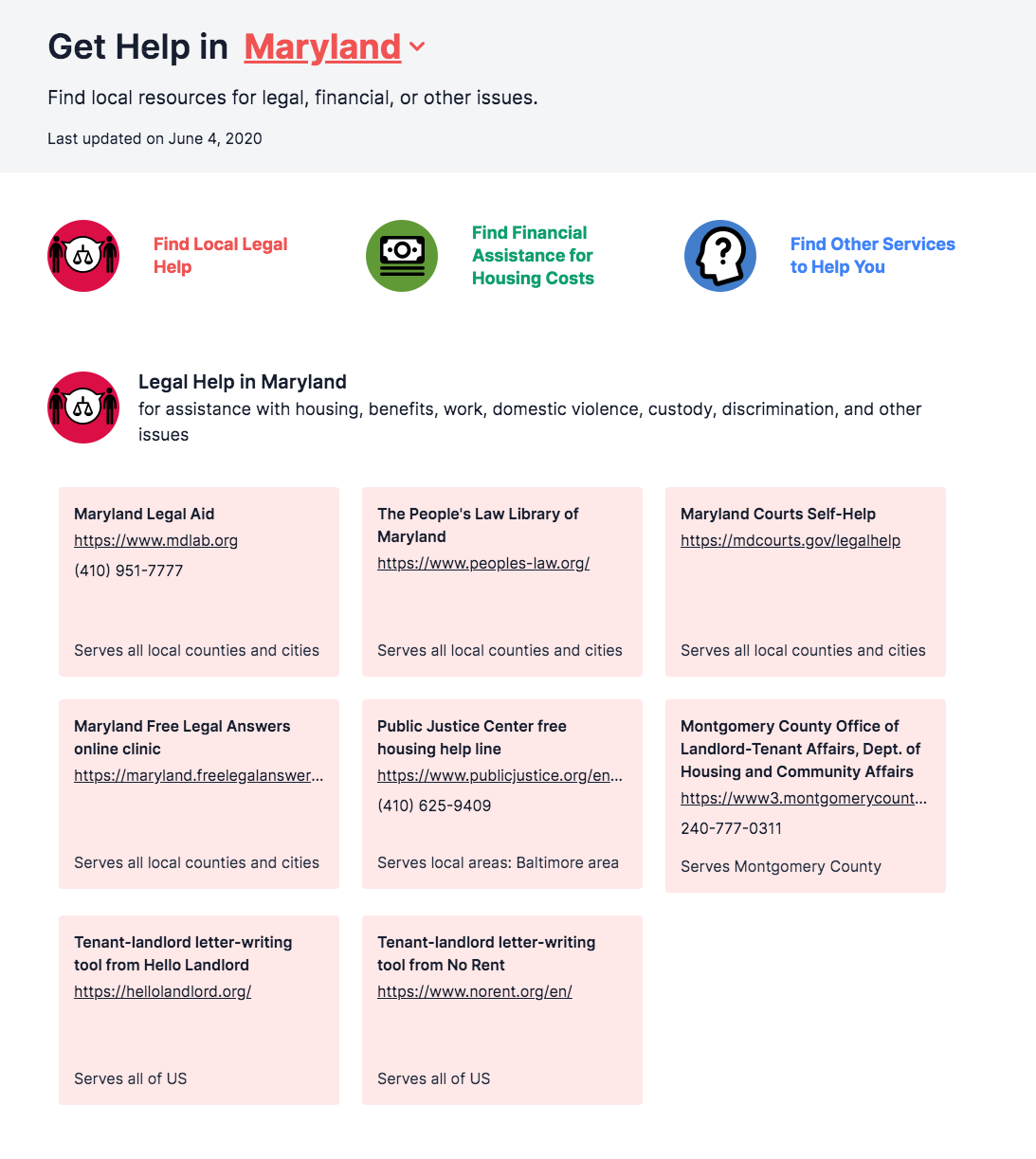
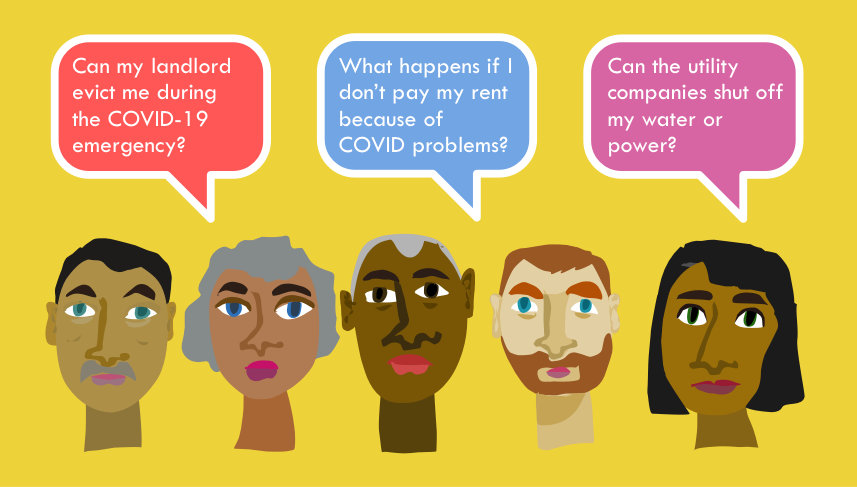
Now our Legal Help FAQ site has information for residential renters in all 50 US states, about what protections they have during COVID-19 and afterward. This covers rights around being evicted, going to court, paying rent, and getting assistance.
It answers key questions that renters have in every state, like:
- Can I be evicted?
- What happens if I don’t pay my rent on time?
- Can my utilities be shut off?
- What should I do if my landlord gives me a notice to leave my home?
- Are courts still running during the COVID emergency?
- Who can help me cover bills or with legal help I need?
If you want to find the answers to these questions for your state, please find the right page to visit on eviction, rent, and emergency help.
